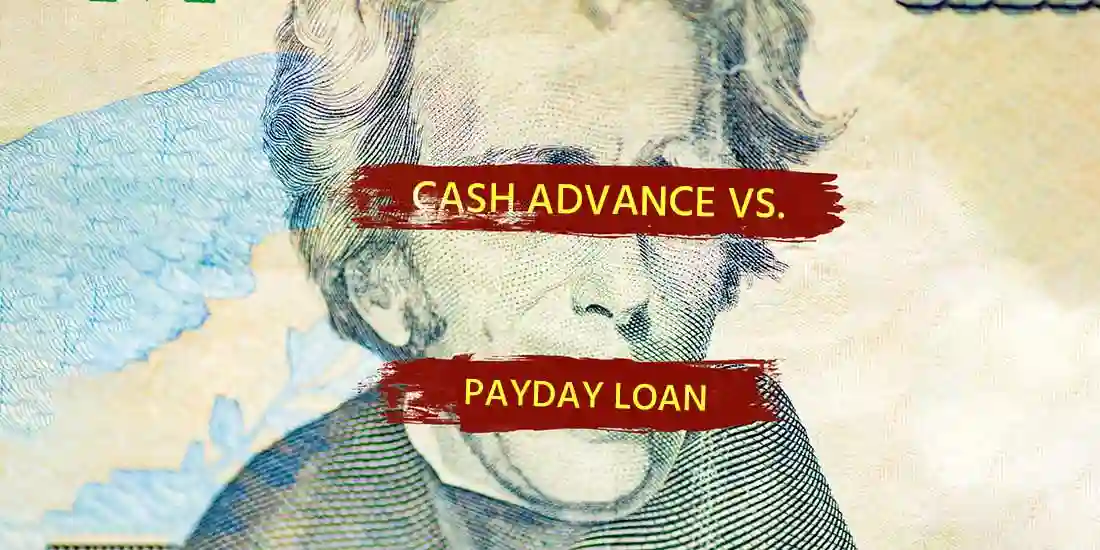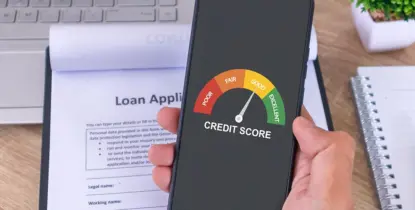
Cash Advance vs Payday Loan: What to Know Before you Borrow
10 Min Read
- Key takeaways
- What is a payday loan?
- What is a cash advance?
- Types of cash advances
- What’s the difference between a payday Loan and a cash advance
- Cash advances vs. payday loans: when each option makes sense
- Where can you get a payday loan or a cash advance?
- Alternative ways to get extra cash
- How to choose the right loan option
- FAQ
Key Takeaways
- Both cash advances and payday loans are designed to help people get quick cash in emergency situations.
- Cash advances are available through cash advance apps, credit cards, or your employer.
- Payday loans are offered by online or storefront payday lenders and come with higher APRs and fees.
- Before obtaining short-term loans, consider alternative options or assistance programs that involve no taking on new debt.
Cash advances and payday loans both provide fast financial assistance for urgent money needs. While these two products may appear similar at first glance, they vary in meaning, amounts, repayment terms, costs, and even regulations. Here’s everything you need to know about the difference between a cash advance and a payday loan to choose the right option.
What Is a Payday Loan?
A payday loan is a small, short-term loan that needs to be repaid in full by a borrower’s next paycheck, usually within 7 to 31 days. This option allows you to borrow up to $1,000, with some states applying lower loan amount caps. Payday loans are known for being easy to get, even with bad credit. However, they also come with high APRs that often reach three-digit numbers.
Pros:
- Easy application process
- Available with bad credit
- Funding within 1 business day
Cons:
- High APRs and fees
- Potential for debt cycles
- Not available in all states
What Is a Cash Advance?
Cash advances are short-term lending options that have several definitions. They may refer to borrowing against your available credit card balance or obtaining access to your earned wages via an app or your employer. Interest rates and repayment terms depend on the cash advance type and an issuer’s policy.
Pros:
- Fast access to cash
- Low or no interest rates are possible
- Flexible repayment options are available
Cons:
- Smaller amounts
- Interest apply immediately for credit card withdrawals
- Extra fees may apply
Types of Cash Advances
Here’s a detailed overview of the cash advances available.
Credit Card Cash Advances
A credit card cash advance is borrowing cash against your available credit limit. You can get it without applying or undergoing a hard credit check. Unlike regular purchases, cash advances accumulate interest immediately and come with higher APRs.
Cash Advance Apps
This option provides quick access to a portion of your earned wage via an app installed on your phone. Many apps offer interest-free loans but may apply express fees for expedited funding or charge you monthly for a subscription.
Employer’s Paycheck Advances
Some companies allow you to access a percentage of your next paycheck upfront. This option is provided based on your written request and is repaid through a future paycheck deduction. Your ability to get one depends on your employer’s policies.
What’s the Difference Between a Payday Loan and a Cash Advance
Here’s a quick comparison table:
| Parameter | Payday Loans | Credit Card Cash Advances | Cash Advances via Apps |
|---|---|---|---|
| Loan Amounts |
$100–$1,000 |
% of credit limit |
$50–$250 |
| Repayment Terms |
7–31 days |
Monthly payments or full balance |
7–31 days |
| Average APRs |
260% – 700% |
25%–36% |
Usually none |
| Extra Fees |
Origination, late |
Cash advance, ATM |
Subscription, express |
| Accessibility |
Online & storefront lenders |
ATMs, checks, withdrawals |
Mobile apps |
| Impact on Your Credit Score |
None if repaid on time |
Affects utilization ratio |
None if repaid on time |
| Regulations |
State-regulated |
Credit CARD Act |
Truth in Lending Act |
Cash Advances vs. Payday Loans: When Each Option Makes Sense
Cash advances work best for small emergencies and instant cash needs. They will also suit borrowers who live in states that ban payday lending. Payday loans may be the right solution for larger expenses of up to $1,000. These loans will also suit borrowers who have no official employment and hold no credit cards.
Where Can You Get a Payday Loan or a Cash Advance?
Payday loans are often offered online or at a lender’s physical location. You can simply get one in a few clicks via the 1F Cash Advance website. Before applying, you need to ensure these products are legit in your state.
Credit card cash advances are available via ATMs, checks, or withdrawals at an issuer’s store. For small paycheck advances, download a money app from the App Store or Google Play.
Alternative Ways to Get Extra Cash
Cash advances and payday loans are not the only options available when you need same-day funds. Here are a few safer alternatives to consider first.
Personal Loans
A personal loan can provide you with amounts between $1,000 and $50,000 that you will repay in equal installments over 12 to 60 months. Traditional banks typically require good credit, while online lenders may set no minimum credit score requirements. However, bad credit options usually have higher APRs. Funding typically takes 1-3 business days.
Credit Union Loans
Credit unions may offer payday alternative loans (PALs) with higher amounts and more flexibility. You can borrow up to $2,000 for a period of 1 to 12 months. An APR is fixed and capped at 28%. While credit unions typically perform hard credit checks, they may accept applications from people with bad credit. You need to be a current CU member to apply.
0% APR Credit Cards
These cards offer interest-free introductory periods, allowing you to save money on interest if you repay the outstanding balance within the set timeframe. However, you typically need to have good credit to qualify. It may also take you 7-10 business days to get your card from the issuer.
Borrowing from Family or Friends
Family loans allow you to negotiate the terms with your loved ones and get interest-free money with a flexible repayment period. The amount you can get is limited to what your family member or friend can lend you at the moment. Make sure to set clear payback times and stick to the deadline so as not to ruin relationships.
Local Financial Assistance Programs
Many charities, local organisations, and government agencies offer financial aid to borrowers who need help with essentials like food, housing, bills, or healthcare. Visit 211.org to find an assistance program available in your area based on your current need.
How to Choose the Right Loan Option
Before you settle on one financial solution, do your research and compare offers to ensure you make an informed decision. Here are a few steps to take:
- Prequalify from multiple lenders. This will help you assess your potential terms with no impact on your credit score.
- Look at APRs and fees. Aim for the lowest possible APR and make sure you understand extra charges and the conditions that cause them.
- Review the loan requirements. Ensure you meet the lender’s eligibility criteria before completing the final application.
- Consider repayment terms. Check out the repayment options offered to calculate your monthly payments and the total loan cost. Choose the period that balances both.
- Ensure you can repay the debt. Be realistic about your current financial situation and how your loan payments align with your budget.
- Check out the lender’s reputation. Read customer reviews and watch for any unresolved complaints. Also, make sure the company’s website has no signs of scams.
FAQ
Is a cash advance the same as a payday loan?
No, these options are quite different. While both offer short-term financial assistance, they differ in terms, amounts, costs, and availability across states.
What are typical fees and interest associated with cash advances and payday loans?
Payday loans usually come with flat lender fees that range from $10 to $30 for each $100 borrowed. Origination, late, and prepayment fees may also apply. Cash advances may involve withdrawal fees and ATM fees. Loans obtained via cash advance apps may have charges for same-day deposits and subscription fees.
Can I repay the funds early?
Most options allow for early repayment with no penalties. However, some payday lenders may charge you for early repayment. Check out the terms of your loan agreement before you pay off the balance.
When will my loan be due?
Payday lenders and cash advance apps typically tie your maturity date to your next paycheck. Credit card cash advances can be either repaid through minimum payments at the end of the billing cycle or covered in full at any moment.
Does applying for a small loan affect my credit score?
Taking out a small loan won’t affect your credit score as long as the lender doesn’t perform a hard credit check. At 1F Cash Advance, we only run a soft inquiry and rely on your overall financial situation.
Can I extend the loan terms?
It depends on the loan type and your state laws. Payday lenders may offer rollovers or extended payment plans in some states. Just note that it may involve extra fees.
Are cash advances and payday loans available in all states?
Cash advances are usually available across the US as long as they meet the state’s lending rules and regulations. Payday loans are prohibited in some states due to their predatory nature.
Can I take out multiple loans at once?
Some states allow you to have several payday loans at a time, while others limit the number of outstanding balances to one. When it comes to cash advances or alternative financial solutions, you are only limited to what you can afford to repay based on your income and current debts.
Get quick financial relief today!Apply



